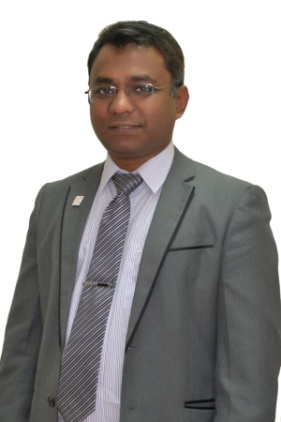Events
CFRED’s 6th LegalTech Seminar- Restoring Direct Holdings and Unified Pricing to Securities Markets with Distributed Ledger Technology by Dr. Mahdi H. Miraz, CEng
07 May, 2019
Today, no major securities exchange can appear hostile to the possible introduction of distributed ledger technology (DLT), particularly blockchain. The fit is good, as core functions of DLT overlap significantly with those of securities settlement system processes. Nevertheless, securities settlement in its current form is understood as reliable, secure and efficient. Its central counterparty component has even been prescribed globally to counter the risks of over-the-counter (OTC) derivatives trading. It is therefore unlikely that cash-poor securities exchanges operating in a highly fragmented market where they must fight for trading volume will expensively rip out their core technology and replace it with DLT unless the change can offer a qualitative improvement over legacy systems. We think a number of such improvements are within reach. First, DLT would allow direct holding to replace the current ‘indirect holding system’ in which depositories are the legal owners of all securities while investors trade claims against the contents of accounts held by such institutions. Because indirect holding must guarantee securities are in the account when a book-entry is made, financial intermediaries are given power, in effect, to create securities that might not exist (“over-issue”). Direct holding will reintroduce robust property rights of investors by returning control over security issue to the issuers, which will permit full transparency of holdings and eliminate “over-issue” risks. Second, a DLT “lightning” network would allow an instantaneous linking of all order-matching venues, so as to re-establish uniform pre- and post-trade information as existed prior to the fragmentation of markets that began around 2000. Risk management can also be improved through empowering order-matching venues as gatekeepers. This seminar will present a model DLT-network for order-matching and settlement in which broker-dealers, issuers and trade-matching venues are nodes of a permissioned/private network and have different authorities within the network ledger. Although all information would be available to all nodes, trade-matching venues would have sole authority to match bid and ask orders, broker-dealers would have sole authority to send an order and confirm a matched trade for settlement, and issuers would have sole authority to book securities to registers evidencing the existence and ownership of those securities.
Date: 7 May 2019 (Tuesday)
Time: 12:30 – 2:00 p.m.
Venue: The CUHK Graduate Law Centre, 2/F Bank of America Tower, Central
About the speaker:

Dr. Mahdi H. Miraz is a Postdoctoral Research Fellow at the Centre for Financial Regulation and Economic Development (CFRED), The Chinese University of Hong Kong (CUHK). He is also a Visiting Fellow at the Applied Research in Computing Laboratories (ARCLab), School of Applied Science, Computing and Engineering, Wrexham Glyndŵr University, UK.
Prior to joining CUHK, Mahdi was an Assistant Professor of Network Engineering as well as was assigned the role of Programme Head (Head of Department), Bachelor of Science in Information Technology (BSIT) Programme, at the School of Computer Studies, AMA International University BAHRAIN (AMAIUB). He had been serving as the Director of UoH Cisco Network Academy as well as a Lecturer, School of Computer Science & Engineering, University of Hail, KSA since 2009.
Mahdi is a Chartered Engineer (CEng), Engineering Council, UK. He is also serving as one of the Associate Editors, Annals of Emerging Technologies in Computing AETiC), an international journal published by IAER. He is an EMC2 certified Cloud Infrastructure and Services (CIS) Instructor and Cisco Certified Network Academy Instructor (CCAI).
Mahdi is a former GO Wales (A Welsh Assembly Government Placement Scheme) intern, former MSP (Microsoft Student Partner) for Wrexham Glyndŵr University and former YPG (Young Professional Group) Representative of the British Computer Society (BCS).
Mahdi obtained his PhD in Computing (Usability Engineering) in 2016, MSc in Computer Networking in 2009 as well as BSc (Hons) in Computer Networks in 2006 all from Wrexham Glyndŵr University, UK. He is an ex-cadet of Barishal Cadet College (BCC), Bangladesh, where he completed his secondary and higher secondary education.
His research interests are in FinTech-RegTech-LegalTech (including Blockchain and Smart Contract), Networking Technologies & Algorithms, Cloud Computing, Internet of Things (IoT) and Human-Computer Interaction (HCI) focusing Cross-cultural Usability.